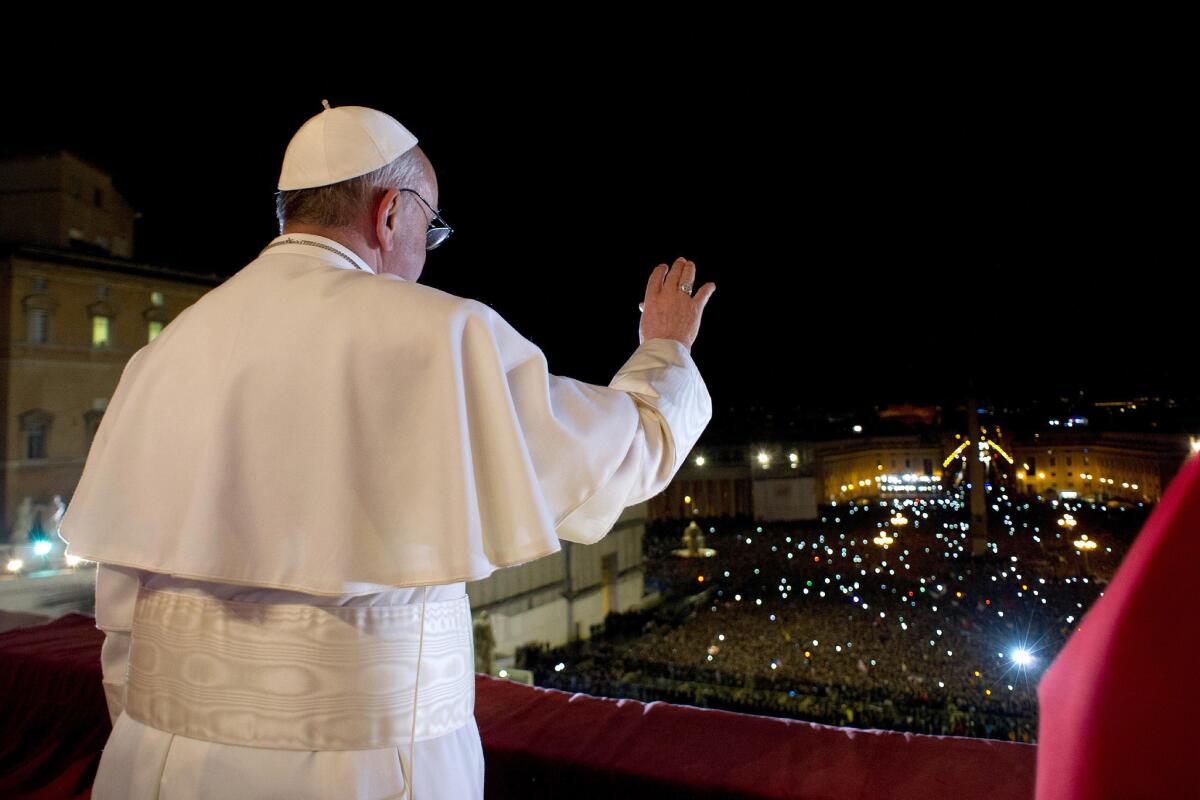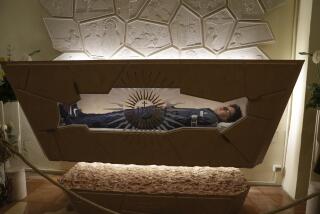Francis, a pope of firsts

The election of a new pope is primarily of interest to Roman Catholics, for whom the bishop of Rome is the Vicar of Christ and the keeper of the keys to heaven. But there is a reason, other than a fascination with history and pageantry, that the wider world will watch expectantly as Pope Francis, the former Cardinal Jorge Mario Bergoglio, begins his ministry.
Although Stalin famously mocked the papacy by asking, “How many divisions does the pope have?,” the institution remains hugely influential, with reach well beyond the church. A series of popes in the 20th century lent the authority of their office to the cause of social equality and the rights of workers. Pope John XXIII, the elderly “caretaker” pope elected in 1958, convened the Second Vatican Council that embraced the concept of religious liberty, reached out to other Christians and repudiated the vile notion that Jews were collectively guilty in the crucifixion of Christ — a “blood libel” that fueled Christian anti-Semitism over the centuries. Though rooted in theology, these gestures transformed the lives of Catholics and non-Catholics alike.
Likewise, the failures of several popes to confront the scandal of sexual abuse by some priests has harmed more than the faithful. Disillusionment over these violations of trust, and the willingness of bishops to cover up for abusive priests, has demoralized Catholics, of course. But it also has undermined the credibility of an institution whose charitable and educational activities benefit not just adherents of the faith. Francis will be judged, as he should be, on whether he adopts on an international basis the policy of “zero tolerance” of abuse that American bishops belatedly adopted.
Based on his career as a bishop in Argentina, the new pope can be expected to support what Catholics call the “preferential option for the poor.” That impression is strengthened by his choice of a name; St. Francis of Assisi loved the poor and disdained pomp and ceremony. That doesn’t mean the new pope will pursue other policies described as liberal, such as acceptance of same-sex marriage, against which he campaigned in Argentina. But there was little chance that a College of Cardinals shaped by John Paul II and Benedict XVI would produce a pope willing to break with traditional Catholic teaching on marriage and sexuality.
At 76, Francis is only two years younger than Cardinal Joseph Ratzinger was when he was elected pope in 2005. That may limit the tenure of a pope whose election already has ignited enthusiasm across Latin America. Whatever the length of his eventual tenure, this pope — any pope — will exert influence beyond his flock; non-Catholics will benefit along with Catholics if Francis devotes himself to the causes of peace, human rights and reconciliation.
More to Read
A cure for the common opinion
Get thought-provoking perspectives with our weekly newsletter.
You may occasionally receive promotional content from the Los Angeles Times.










